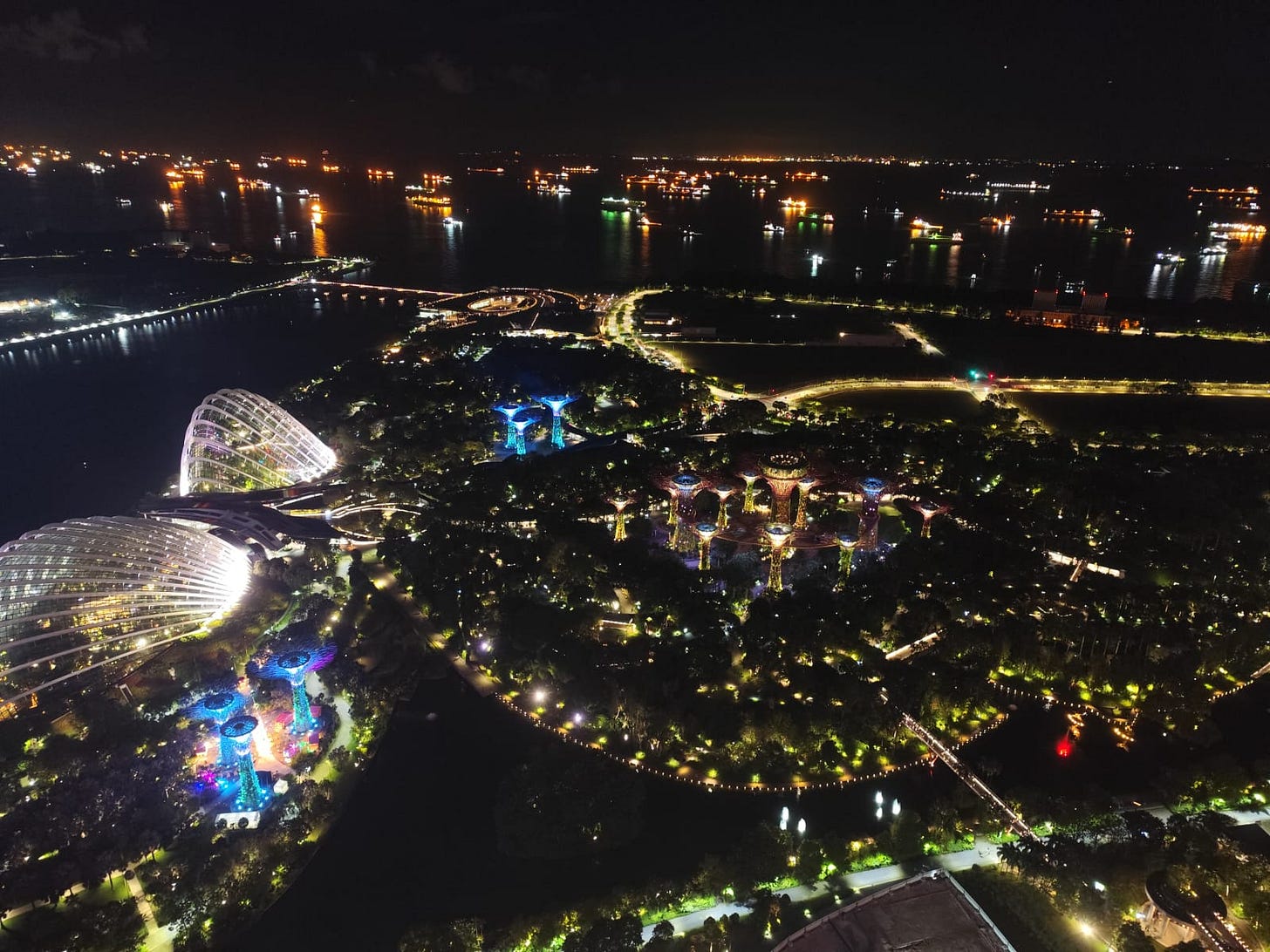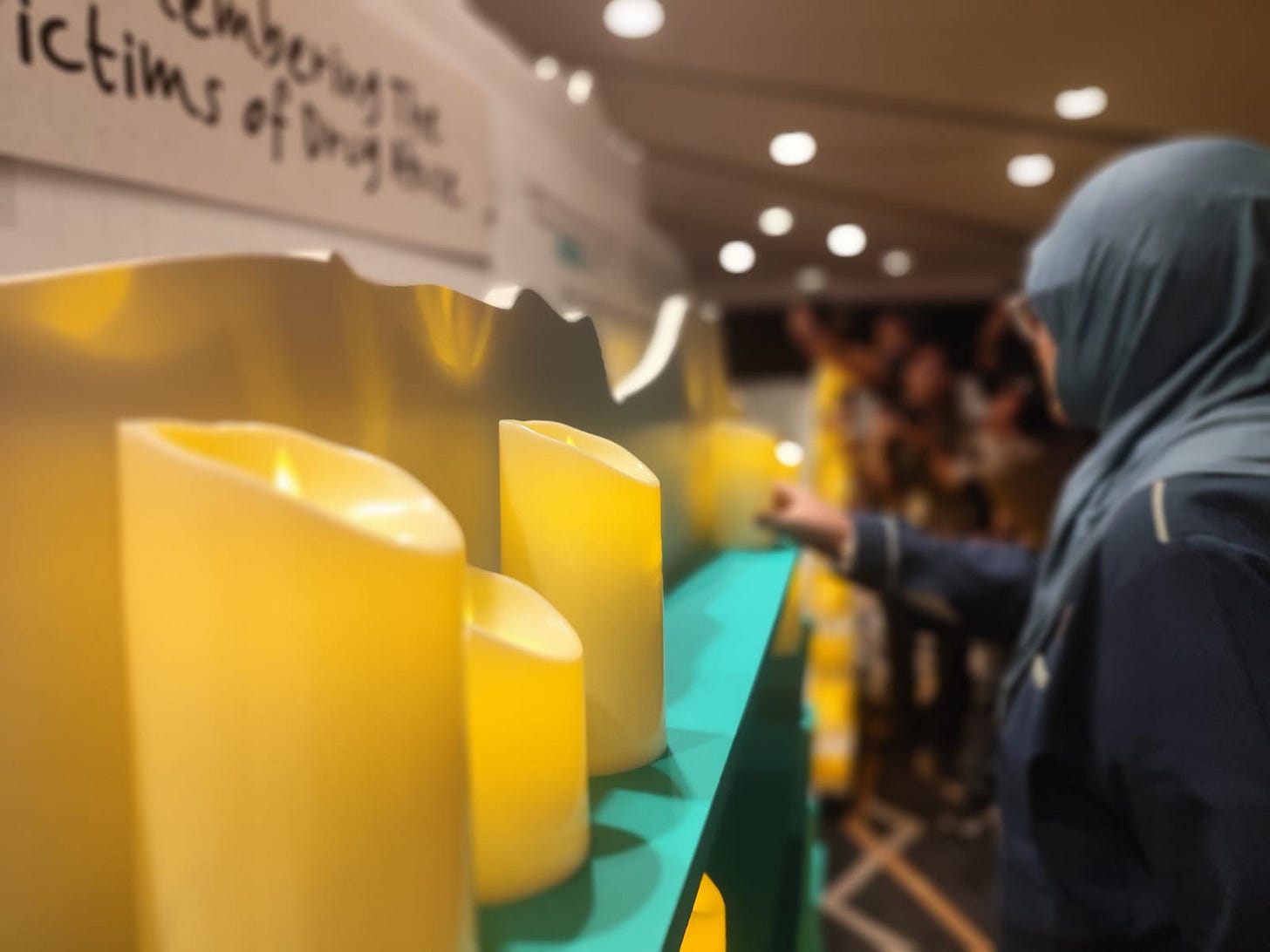Singapore: High-Tech, Low-Crime and Hanging
I visit Asia's "Lion City" and look at its zero tolerance on drug trafficking
Para leer en español, click aqui.
In the glittering heart of Singapore, government officials and delegates from across Asia and beyond held a ceremony in an expo center for a so-called “drug victims remembrance day.” Electric candles filled a wall, with attendees placing lights in memory of those who have perished from overdoses around the world. Singapore’s Law and Home Affairs Minister K. Shanmugam, 66, took to the stage in a short-sleeved shirt.
“More people have died in the U.S. through drugs in the last few years compared with all the wars that America has been involved in since the Second World War. That is the scale of the tragedy,” Shanmugam said somberly. “The drug situation in Singapore is significantly different. And this is because we have the resolve to tackle the problem head on.”
The tough approach he described includes compulsory rehab in secure facilities for users, and death penalty for traffickers. Those found with dope above a certain threshold, such as fifteen grams of heroin or 500 grams of cannabis (just over a pound), can meet the hangman’s rope. Since 2022, the Asian city state has hanged about thirty people, mostly for drug offenses, according to a tally by Agence France-Presse.
The executions are condemned by human rights groups like the New York-based Human Rights Watch. “Singapore’s business and trade partners should publicly and privately raise concerns about the city-state’s continued use of the death penalty, and urge the government to urgently impose a moratorium on the inherently cruel practice,” said Bryony Lau, HRW’s deputy Asia director.
However, in Singapore itself the hardline approach appears to be very popular, at least according to government surveys. In 2023, 75 percent said they supported executing traffickers, an increase since 2021, and 88 percent approved of capital punishment for intentional murder.
Singapore has extremely low crime rates, with just ten homicides last year in the country of six million, or 0.16 killings per 100,000. This even makes the UK look murderous with more than five times as many homicides per capita, while the United States had thirty-five times as many, Mexico had 145 times as many and Jamaica suffered 308 times as many. There is debate about how much hardline law enforcement and low crime are correlated, but it has to be taken into account.
I was invited to Singapore to speak at the Asia-Pacific Forum Against Drugs and gave a talk about cartel bloodshed and fentanyl trafficking. I got a chance there to enter a secure drug rehab center, talk to officers who bust dope for the Central Narcotics Bureau and meet the Minister Shanmugam. I also interviewed Kirsten Han, a prominent journalist and activist against the death penalty.
Han, 36, and fellow activists at the Transformative Justice Collective hold candle lit vigils for inmates on death row and protest to try and save their lives. The Minister Shanmugam said in response they are lighting candles for drug victims.
“The activists against death penalty light candles for the drug trafficker who makes a cynical decision to bring drugs into Singapore and make money out of it,” Shanmugam said. “We light candles for the children, and the innocent people and their families, who die all across the world. They are more worthy of human rights.”
Shanmugam has personally criticized Han and her fellow activists and they have been put under investigation for spreading fake news under a misinformation law. Han retorts that Singapore is an authoritarian country with one of the world’s most extreme approaches to non-violent drug offenses, including mandatory death penalties. As Han told me: “
Sorry folks, you need to subscribe to read the rest of the story. But it’s only the price of a cuppa coffee and you get the complete archive including exclusive interviews and maps of cartel territory. And now is a great time to subscribe as we will be following these issues with detailed reports you can trust as big things break in the coming months.




